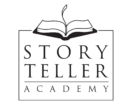Three Tips for Connecting with Agents and Editors Through Conferences
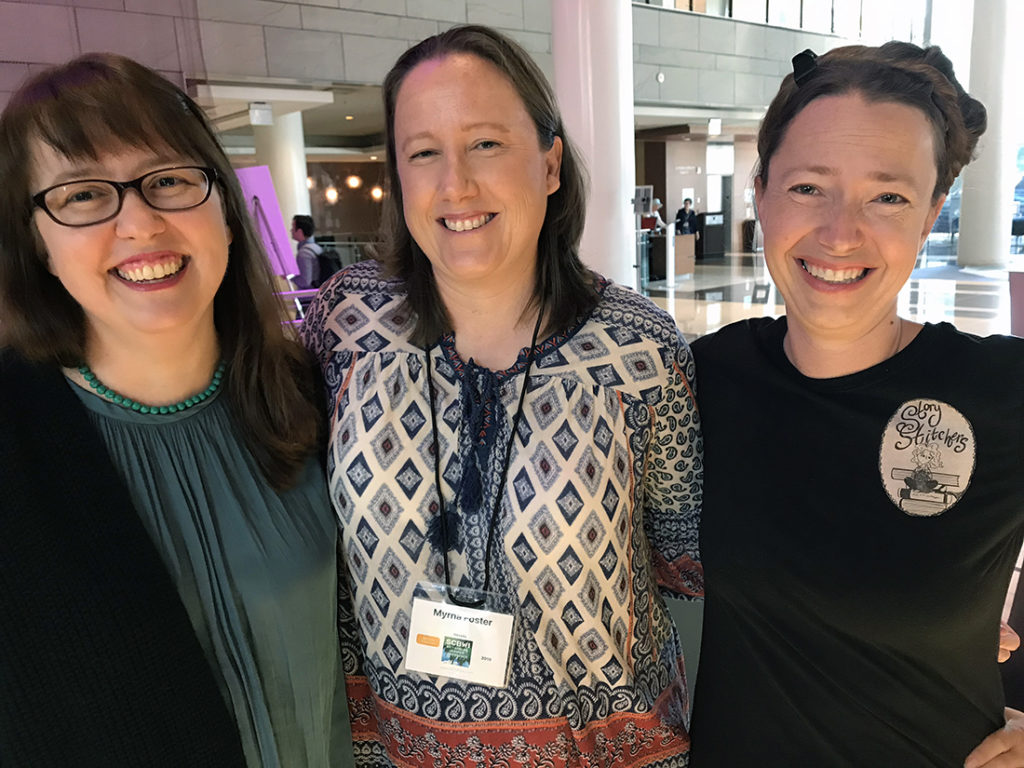
I flew back home from the SCBWI Summer Conference in Los Angeles, California, on Monday night, and I’m still processing all of it. I go to conferences to find inspiration and make connections with people. Being around people who are working toward the same goals that I am makes me happy.
The most important connections that you make at a conference might NOT be with agents, editors, or the already published professionals whom you admire. At a conference where nearly everyone attending is serious about their craft, there isn’t a lot of difference between the published and the unpublished. Unpublished attendees at this year’s conference will be keynote speakers at conferences in the future.
Be kind to everyone.
(If you’d like a glimpse of what we experienced at this year’s conference, SCBWI has blog writers who do a fabulous job of sharing.)
As much as I enjoy meeting new people, going to conferences with friends makes everything better. I had a lot of fun with my roommates this year.
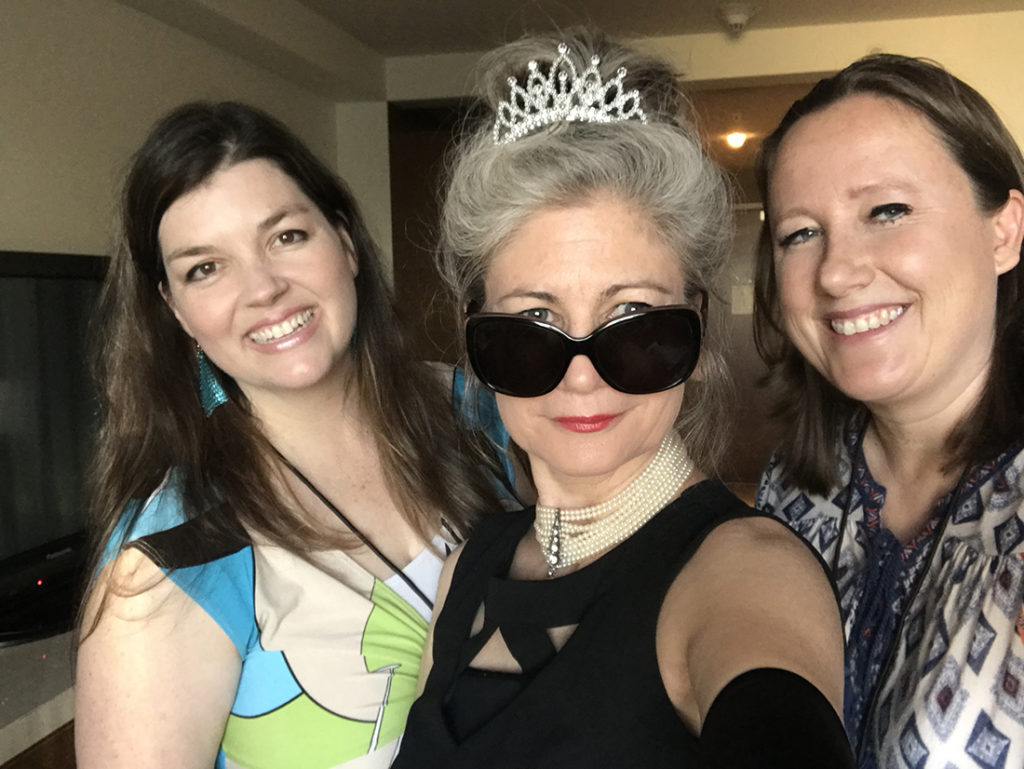
My fellow SCBWI Nevada volunteer and Storyteller Academy student, Cindy Ritsko (the Audrey Hepburn lookalike), took all of the photos for this post.
Storyteller Academy Dinner
We met at Yard House on Thursday night for our third Annual Storyteller Academy Dinner. It was great to see everyone!
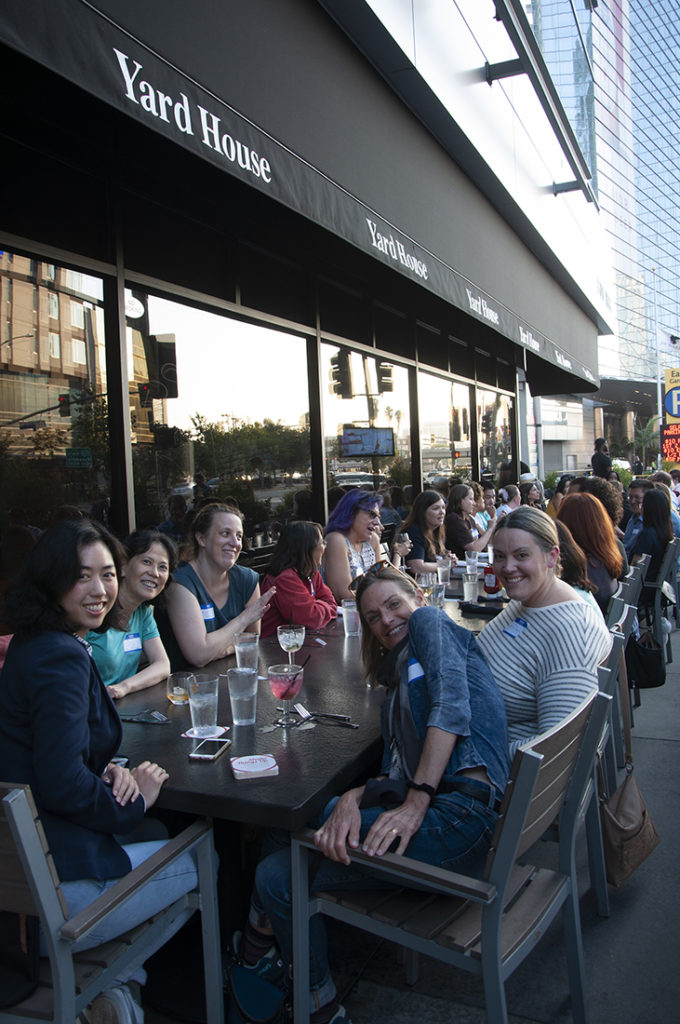
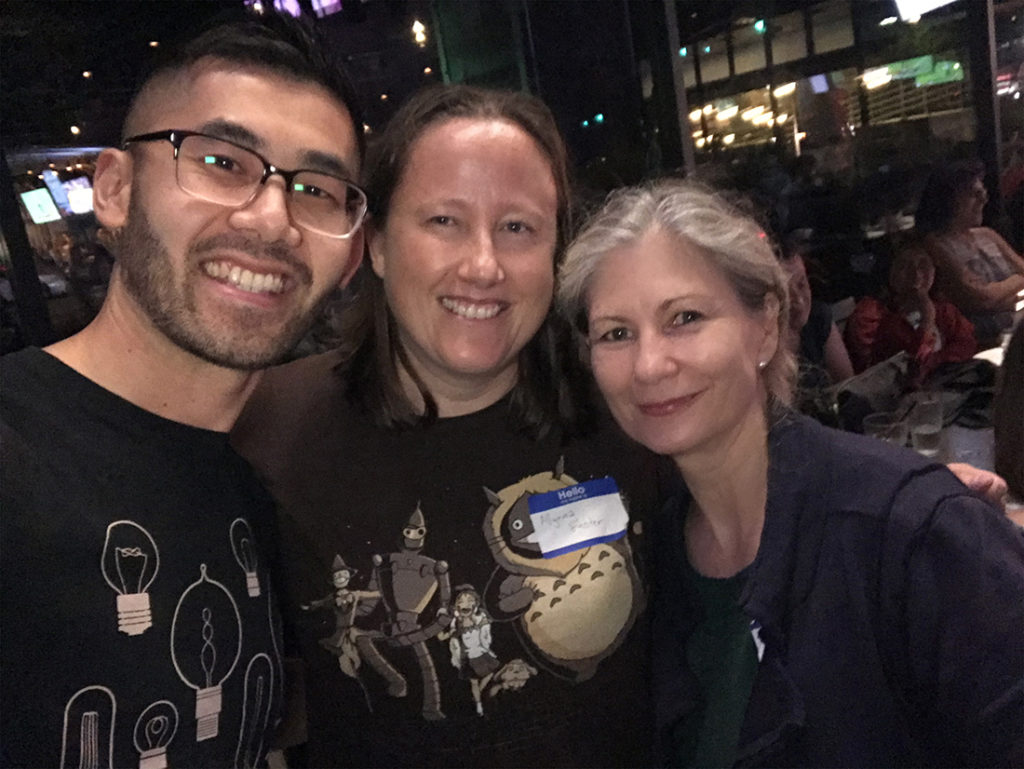
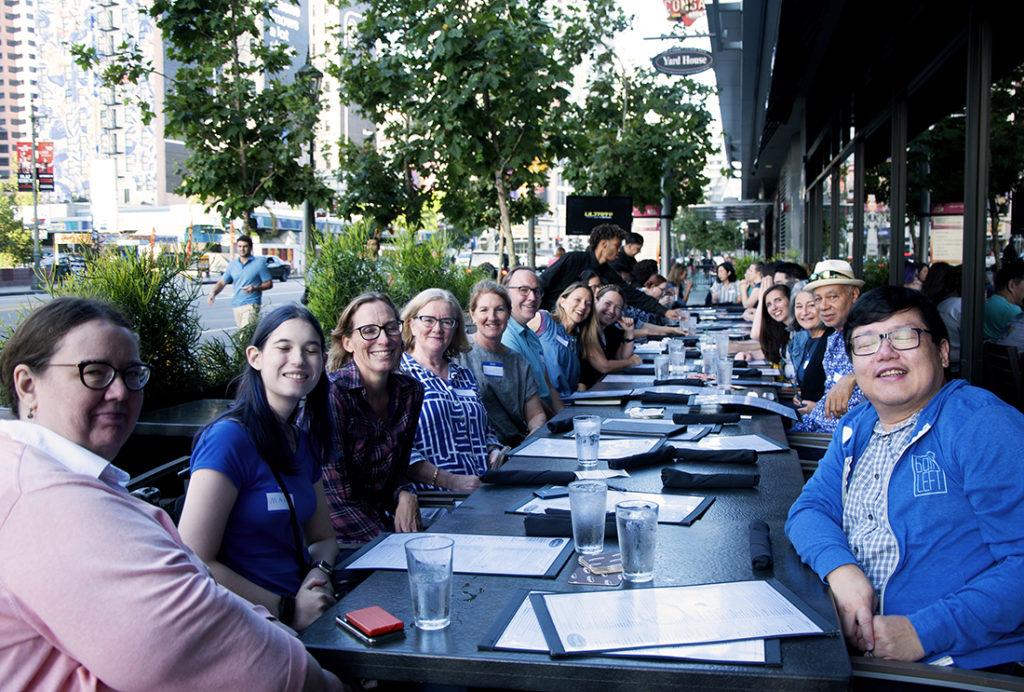
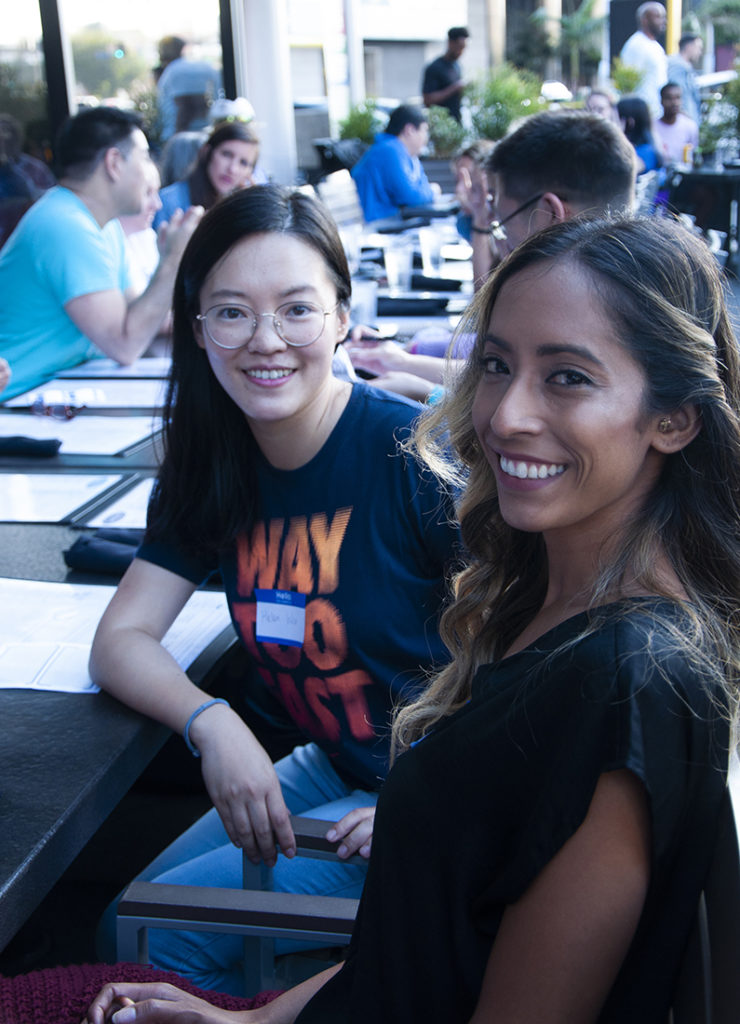
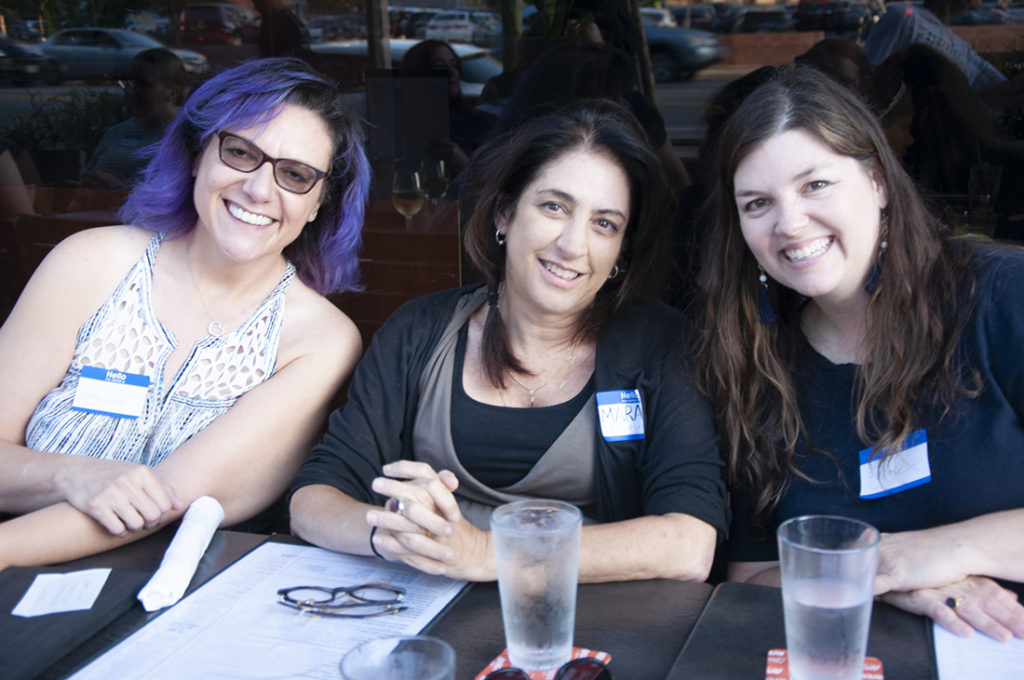
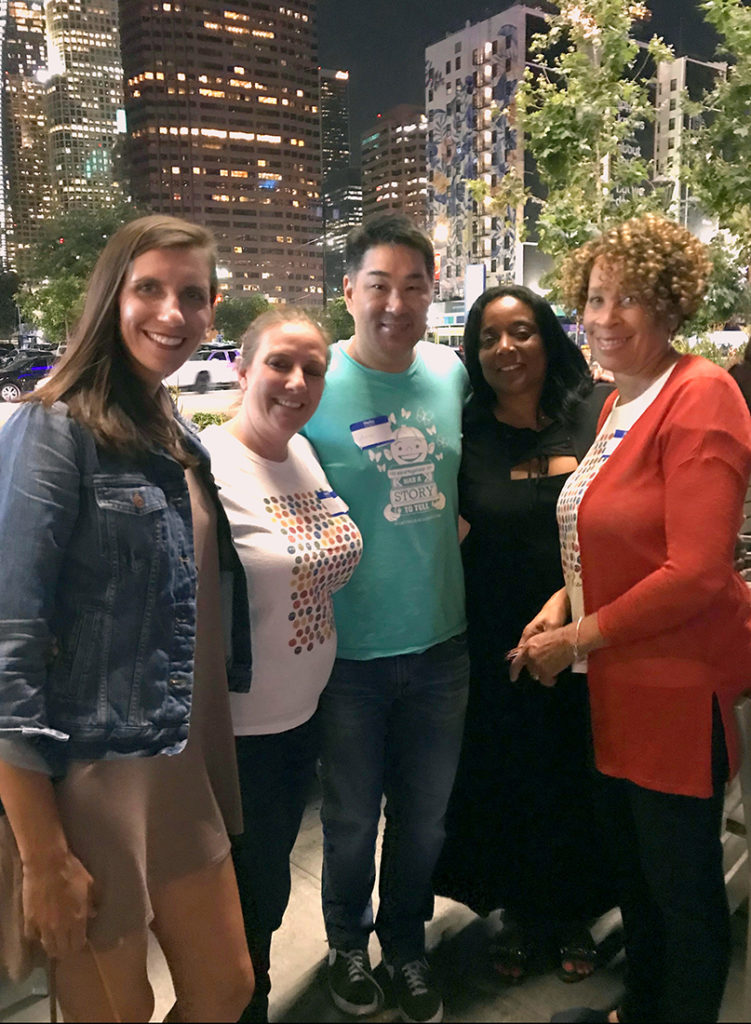
And now, let’s get down to business. I’m going to share my three tips for making a good impression on agents and editors through conferences.
Tip #1: Research Before the Conference
There are a couple of different ways that you can go about this.
If you’re going to your regional conference—or one of the big conferences in Los Angeles or New York—you can look up agents and editors on Manuscript Wish List and Twitter. Their conference blurbs ought to give you enough information that you can search for interviews and other information. Find out which authors, illustrators, and books they’ve worked with before signing up for critiques. I wrote another blog post on researching agents.
Once you’ve been doing this for a while and are familiar with certain agents and editors, you can look up where they’re going to be presenting. Agents often have that kind of information on their websites. Check out different SCBWI regions to see which industry professionals they have attending their retreats and conferences.
If you already have an agent or an editor and know you’ll be at the same conference, ask if they have time to meet with you. Chances are, they’ll find time.
(And don’t be like me. If you meet with your agent, remember to take a picture. That’s two conferences this year, zero photos.)
Tip #2: Be Gracious at the Conference
In the words of Allyn Johnston (VP and publisher of Beach Lane Books), “Don’t be weird.” It seems like Allyn has fresh stories to tell about authors behaving badly at every conference. This year, Allyn said that a woman in the elevator with her confronted her about a dog story that she’d rejected, fully expecting Allyn to remember the story and rejection.
At most conferences, you’re going to have access to editors and agents. Arthur Levine sat by me during Meg Medina’s keynote speech on Sunday. Did I pitch to him or slip him a manuscript? Nope. I smiled at him when he sat down, and then we both listened to a fantastic keynote.
Don’t try to pitch or give an industry professional anything, unless they ask for it. If they ask for it, they mean it.
Do thank them for their presentations and critiques. They like thank you cards.
Have a pitch ready, just in case you’re asked for one.
Business cards say that you’re a professional. Have them ready, but wait until you’re asked.
Don’t ever follow someone to the bathroom.
Use the research you did beforehand to ask smart questions about their favorite book projects and clients.
Listen. Tip #3: Follow Up After the Conference
Usually, you will have submission opportunities after the conference. Submit your best work to the editors and agents who are the best fit for it. If you connected with industry professionals through critiques, intensive, or sitting by them at dinner (or just want to connect with them in the future), follow them on social media. If you’re already following them on social media, then like and/or comment on something they posted. You could give them a shout out for giving a great presentation.
Just remember: “Don’t be weird.” Building meaningful relationships takes time.
And finally, if you’re just starting out and want to know more about conferences, this video with Arree Chung, Isabella Kung, Abi Cushman, and Elaine Kiely Kearns might answer your questions.
Thanks for reading! If you still have questions, ask them in the comments! If you have stories or advice, please share!
Blog Contributors
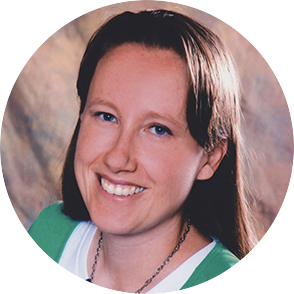
Myrna Foster writes and edits content for Storyteller Academy and the WriteRiders Newsletter for SCBWI Nevada. She has spent a lot of time teaching and coaching children, including five years as a preschool teacher. She's also worked as a journalist, and Highlights High Five has published six of her poems.
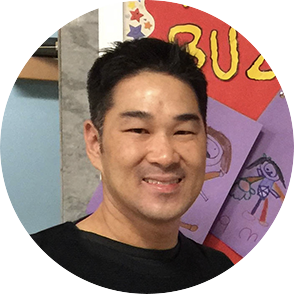
Arree Chung is an author/illustrator and the founder of Storyteller Academy. Arree’s Ninja! series has received starred reviews from Kirkus and School Library Journal. Kirkus also gave a starred review to Mixed, which recently won the FCGB award.
Today Arree lives a creative life, making stories for children. Arree spends most of his time making picture books, writing middle grade novels, and sharing his love for art, design, and storytelling with kids and dreamers everywhere.
